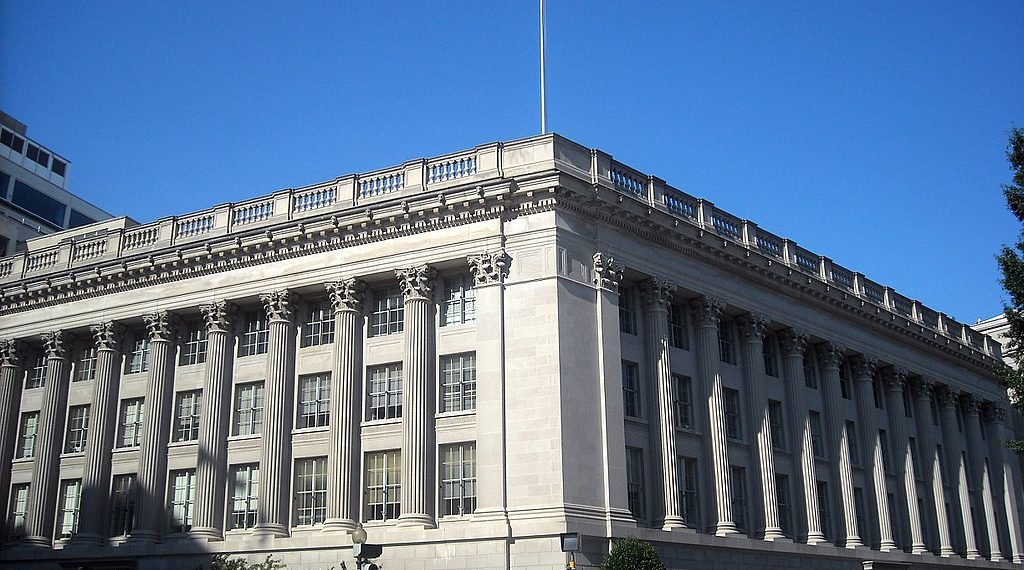CEOs recently issued a strong message to policymakers around the country that addressing climate change is a business imperative.
The Business Roundtable (BRT), representing more than 200 of the country’s largest employers and most influential chief executives, made headlines last month when it launched a set of policy principles that go further in addressing climate change than any other major trade association to date. The new statement clearly supports the goals of the Paris Agreement and, even more notably, calls for a price on carbon to be the central pillar of a portfolio of policies to achieve greenhouse gas (GHG) emission reduction targets aligned with science. We might have added one or two other things, but overall, the new principles are a welcome and positive contribution — especially since they build on the work of companies setting Science Based Targets and participating in forums like the CEO Climate Dialogue.
A year ago, the BRT released an updated definition of the purpose of a corporation that went beyond a singular duty to maximize profit. At the time, we challenged the organization to back up words with actions. Twelve months later, we take great pleasure in being able to start to walk that back.
But, will the statement actually influence policy? That all depends on what comes next.
The BRT’s new climate statement is bold, but change will be slow to come without a major lobbying effort pushing this agenda in Congress. Currently, it is unclear whether the BRT plans to undertake that effort.
More importantly, other trade associations, notably the hugely influential U.S. Chamber of Commerce, are exerting significant lobbying muscle to slow climate action. The Chamber’s principles on climate policy are far weaker than the BRT’s.
The BRT’s science-based climate policy principles will only be put into action if CEOs are willing to push all their trade associations to adopt them.
To Be or Not to BRT? That Is the Question.
Notably, at least 60 of BRT’s members are also members of the Chamber, arguably the most powerful business lobbying voice in the country. This number is almost certainly an underestimation of the true overlap, as membership in the Chamber is not public information.
The Chamber has a mostly negative record on important climate change policies. Though it has worked to advance regulations to reduce super-pollutant hydrofluorocarbons (HFCs), it has also declined to support critical climate policies, such as a price on carbon, and has gone so far as to support the rollback of vehicle emissions standards. The direct negative impact of the Chamber, together with the indirect impact of its funding of climate deniers in Congress, is significant.
The Chamber purports to represent all of its members. With 60 or so shared with the BRT—29 of whom sit on the Chamber’s Board of Directors—it is fair to ask how these different positions on climate change will be reconciled. Which trade association represents these companies’ true interests?
How CEOs Can Put BRT’s Climate Policy Recommendations into Action
Ultimately, we see this as an opportunity to align influence on an essential issue with business and communities around the country. It is time to marry the Chamber’s influence with BRT’s climate policy principles. CEOs that are members of both associations are in a good position to make that happen.
So, here is how dozens of CEOs can make clear that climate change policy is essential to the future of their companies, employees, customers and the entire community. Take BRT’s new climate principles to the Chamber and get lobbying support for:
- A price on carbon;
- The goals of the Paris Agreement and continued U.S. involvement in it; and
- Consistent support for other policies that protect communities from climate change – and an end to any actions that work counter to this.
If the Chamber cannot represent those interests, then Chamber membership is directly undermining the CEOs’ and their companies’ strategic interests. It is also undermining the validity of these companies’ commitment to climate change.
CEOs should actively work to change the Chamber’s climate positions, or they should publicly and explicitly distance themselves from them or leave the association. We hope to see the Chamber get behind policies that support achievement of the Paris Agreement, carbon pricing and other complementary policies that will ensure American business is positioned to thrive in the globally competitive markets of the future.
We are sure we are not the only ones waiting to see what happens next.



